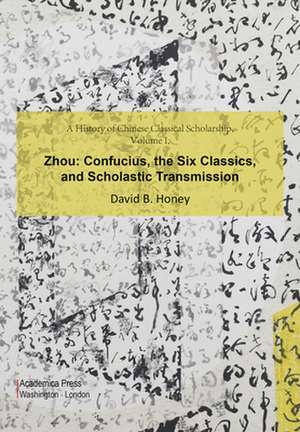A History of Chinese Classical Scholarship, Volume I, Zhou
Autor David M Honeyen Limba Engleză Hardback – aug 2021
Preț: 682.38 lei
Preț vechi: 749.87 lei
-9% Nou
Puncte Express: 1024
Preț estimativ în valută:
130.59€ • 135.18$ • 110.38£
130.59€ • 135.18$ • 110.38£
Carte disponibilă
Livrare economică 12-26 februarie
Preluare comenzi: 021 569.72.76
Specificații
ISBN-13: 9781680539608
ISBN-10: 1680539604
Pagini: 260
Dimensiuni: 152 x 229 x 24 mm
Greutate: 0.75 kg
Editura: Academica Press
ISBN-10: 1680539604
Pagini: 260
Dimensiuni: 152 x 229 x 24 mm
Greutate: 0.75 kg
Editura: Academica Press
Descriere
The first volume of David Honey's comprehensive history of Chinese thought offers a close study of Confucius, that tradition's proto-classicist. This opening volume examines Confucius traditions that largely formed the views of later classicists, who regarded him as their profession's patron saint.
